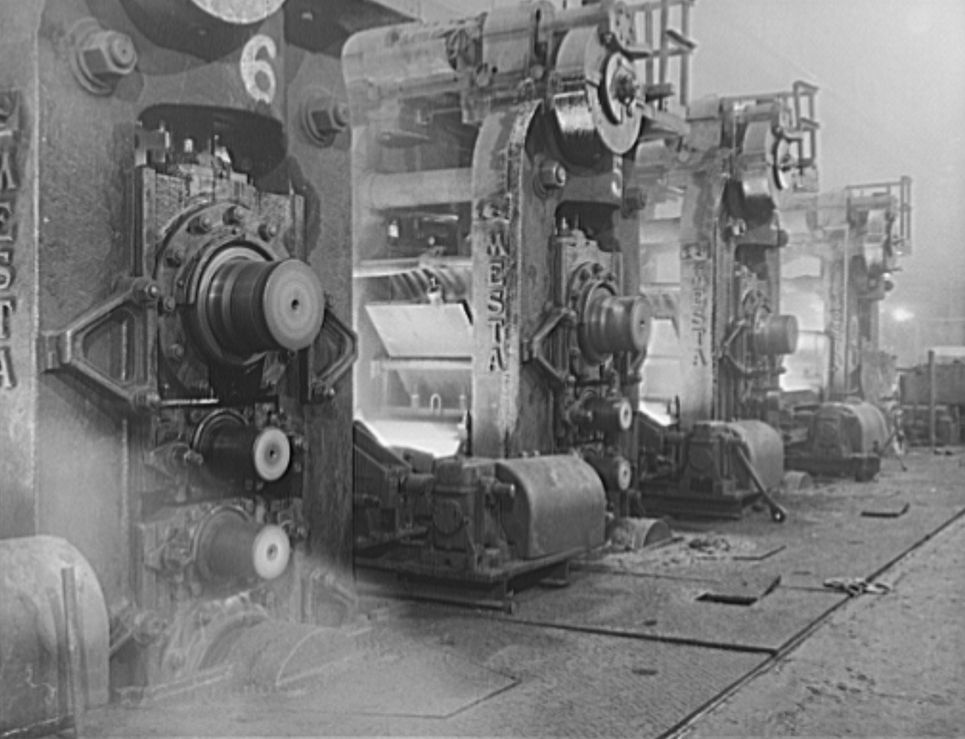Before it’s sold or after it’s sold?
- Mike Brandly, Auctioneer

- Jan 5, 2022
- 3 min read

At an auction held by David Weisz Company (Weisz) on October 25, 1978, a certain metal rolling machine “Plate Rolls?” was sold at auction, constituting a sale from Wilson Machinery, Inc. (Wilson) to San Jose Mixer Repair Service/Don E. Brejcha, (Brejcha) employee.
On January 4, 1980, Brejcha filed a complaint about his personal injuries naming as defendants Wilson and Weisz et al. Brejcha’s complaint alleged causes of action for negligence, breach of warranty, and strict liability in tort seeking damages for loss of fingers while operating the rolling machine.
This case was appealed on October 1, 1984, and that case is known as Brejcha v. Wilson Machinery, Inc., 160 Cal.App.3d 630, 206 Cal. Rptr. 688 (Cal. Ct. App. 1984). The final ruling denied Brejcha’s claim basically because this metal rolling machine was “Sold!” AS IS so all implied warranties of MERCHANTABILITY and FITNESS for a particular purpose barred recovery. Incidentally, we’ve made AS IS, MERCHANTABILITY, and FITNESS in conspicuous print, and you should too.
We hold this ruling to be correct — auctioneers are not (and should not) be responsible for merchantability nor fitness after “Sold!” (some legal scholars disagree on waiveability, nonetheless) minus any willfulness, negligence, carelessness, or recklessness. In fact, we’ve testified to this more than once, with equipment or industrial machinery failing in some regard after “Sold!” at auction, resulting in severe injuries and even death.
However, this aforementioned case involved a metal rolling machine that was already sold, with Brejcha holding title and having exclusive possession of the machine. Let’s change the story a bit and assume that Brejcha attended the auction and when he got close to inspect the machine and metal rolls during preview, one metal roll rolled over him and he was severely injured. Would your “AS IS” disclaimer save you from possible responsibility?
In talking to a few personal injury attorneys I know very well, there appeared to be a consensus that any retail (or other) establishment such as an auction — would have a duty of care for any auction invitees. These duties would generally be precautions that would prevent bidders from being injured by some hazard the auctioneer knew about, or should have known about, had they exercised a reasonably diligent inspection.
Of course, auction attendees (invitees) have the burden to act reasonably as well to protect themselves from harm — and take reasonable precautions. However, it seems the burden typically falls to the inviter to provide a safe environment — and then an evaluation if the invitee’s behavior matches typical expectations.
So I asked these attorneys, “Could an auctioneer waive or disclaim any responsibility for any hazards, such as metal rolls rolling over and severely injuring an auction attendee who did not have title nor possession of said property?” Most thought maybe not, but an auctioneer would better insulate himself by not willfully, negligently, carelessly, or recklessly exposing bidders to harm.
However, all of these personal injury attorneys suggested a waiver or disclaimer would not prevent liability in the case of an auctioneer noting that he is not responsible for heavy metal rolls not properly secured — and severely injuring an auction attendee, likely constituting careless and reckless behavior. In other words, generally, you could only disclaim responsibility except for reasonable care. One attorney remarked, “How would you feel if you were the attendee, and got run over by unsecured metal rolls?” “Not well …?”
Could an auctioneer’s liability for willfulness, negligence, carelessness, and/or recklessness extend after “Sold!?” In two other cases in which we were retained, the auction buyer (or his Estate) shortly thereafter successfully sued auctioneers and sellers for dangerous (lethal) hazards citing the auctioneer’s obvious careless and reckless behavior. Here again, it’s been our experience that with “reasonable care” auctioneers are largely insulated from this liability.
If you are an auctioneer, seller, bidder, or buyer and are injured or accused of causing an injury, it is imperative you seek out competent legal counsel as soon as possible. For auctioneers, in particular, proper insurance and business structure can help mitigate potential losses.
Mike Brandly, Auctioneer, CAI, CAS, AARE has been an auctioneer and certified appraiser for over 30 years. His company’s auctions are located at: Mike Brandly, Auctioneer, RES Auction Services, and Goodwill Columbus Car Auction. He serves as Distinguished Faculty at Hondros College, Executive Director of The Ohio Auction School, and an Instructor at the National Auctioneers Association’s Designation Academy and Western College of Auctioneering. He is faculty at the Certified Auctioneers Institute held at Indiana University and is approved by The Supreme Court of Ohio for attorney education.




Comments